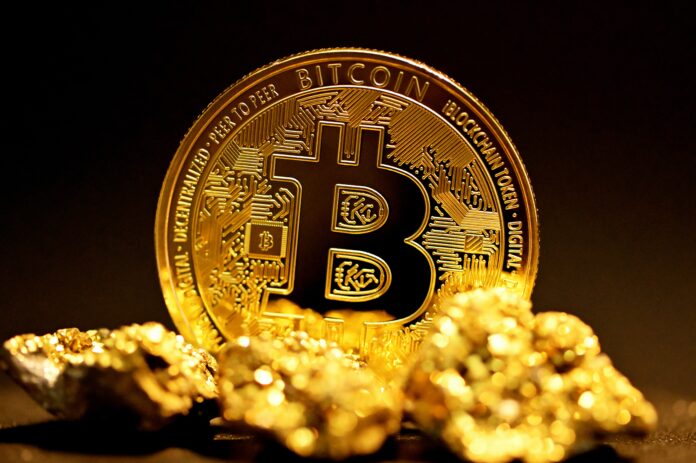Bitcoin, the ground-breaking cryptocurrency introduced to the world by the mysterious Satoshi Nakamoto in 2009, has captured the imagination of many as a revolutionary form of digital currency.
One of the key distinctions often attributed to Bitcoin is its classification as “hard money.” Bitcoin has earned this reputation because of its unique fundamental characteristics, technological underpinnings, and the impact it has on our everyday lives.
By delving into the decentralized nature of the Bitcoin network, its limited supply, and its resistance to censorship and manipulation, let’s discuss why Bitcoin is widely regarded as hard money:
Absence of third party intermediaries
After years of trial and error by many programmers, Bitcoin was the first engineering solution that allowed for digital transactions without having to rely on a trusted third party intermediary. Bitcoin is the first example of digital cash.
There were several drawbacks to transacting through trusted third parties. involving an extra party in your transaction introduces risk because it opens up new possibilities for theft, technical failure or fraud.
Also intermediate payments take away a significant share of the properties of money as a medium of exchange controlled by its owner.
The move towards digital payments was reducing the amount of sovereignty people have over their own money and leaving them subject to the whims of the third parties they had no choice but to trust.
Bitcoin is purely a peer to peer form of electronic cash that requires no trust in third parties for transactions and its supply cannot be altered by any other party.
Decentralization and Trustlessness
At the heart of Bitcoin’s hard money status lies its remarkable decentralization. Unlike traditional currencies that are governed by central banks, Bitcoin operates on a decentralized network called the blockchain.
Nakamoto removed the need for trust in a third party by building Bitcoin on a foundation proof and verification. Every transaction has to be recorded by every member of the network so that they all share one common legger of balances and transactions.
This unique architecture ensures that no single entity holds the power to unilaterally manipulate the supply or value of Bitcoin. By eliminating intermediaries and relying on complex cryptographic algorithms, Bitcoin creates a trustless system, allowing individuals to transact directly with one another, without the need for a central authority overseeing every transaction.
Limited Supply and Scarcity
Another crucial aspect of Bitcoin’s hard money qualities is its limited supply. Unlike traditional fiat currencies that can be printed at will by central banks, Bitcoin sticks to a predetermined maximum supply of 21 million coins.This scarcity is enforced by the underlying blockchain technology, making it incredibly challenging and resource-intensive to create new bitcoins.
The quantity of Bitcoins created is preprogrammed and cannot be altered no matter how much effort and energy is expanded on proof-of-work. This controlled issuance is facilitated through a process called mining, which involves solving intricate mathematical puzzles.
As more people choose to hold Bitcoins, this drives up the market value of Bitcoin and makes mining new coins more profitable, which encourages more miners to expand more resources on solving mathematical puzzles. More miners means more processing power, which would increase the rate of issuance of new bitcoins. But as the processing power rises Bitcoin will raise the difficulty of the mathematical problems needed to unlock the mining rewards to ensure blocks will continue to take the same time to produce.
The finite supply of Bitcoin contributes to its hard money nature by ensuring that its value cannot be diluted over time. As demand for Bitcoin grows, its scarcity intensifies, potentially leading to an increase in its value. This particular attribute aligns Bitcoin with precious metals like gold, which have long been considered hard money due to their limited supply and intrinsic value.
Censorship Resistance and Immutability
Bitcoin’s decentralization and trustlessness make it resistant to censorship and manipulation—a crucial aspect of its hard money characteristics. Transactions conducted on the Bitcoin network are recorded on the blockchain, serving as an immutable ledger of all transactions since its inception. Once a transaction is confirmed and included in a block, it becomes incredibly difficult, if not impossible, to alter or reverse.
This censorship resistance is vital for upholding the integrity and durability of hard money. In traditional financial systems, there is a risk of censorship, where authorities can freeze or confiscate funds, impose transaction restrictions, or manipulate monetary policy. Bitcoin’s decentralized design prevents such interference, providing individuals with control over their wealth and financial independence.
Security and Protection against Inflation
Bitcoin’s hard money status is further supported by its strong security measures. The underlying blockchain technology utilizes cryptographic algorithms that secure transactions and protect against unauthorized access. This exceptional security ensures the integrity of the Bitcoin network, making it highly resistant to hacking attempts or fraudulent activities.
Moreover, Bitcoin offers protection against inflation, a common concern associated with traditional fiat currencies. Central banks can increase the money supply, leading to a decrease in purchasing power over time. In contrast, Bitcoin’s limited supply and predetermined issuance rate safeguard against inflationary pressures, making it an attractive store of value.



